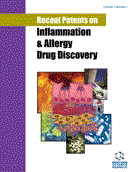Abstract
Hereditary angioedema (HAE) is a rare familial disease characterized by recurrent self-limiting episodes of soft tissue swelling affecting different parts of the body. Acute HAE attacks range from benign, but disfiguring skin edema, to painful abdominal, and even life-threatening laryngeal attacks. The disease is caused by an aberrant C1 esterase inhibitor (C1-INH), which regulates complement, fibrinolytic, and contact pathways. Elevated serum level of bradykinin as a result of contact pathway activation is thought to be the major mediator of pain and edema formation in HAE. Current therapy of acute HAE attacks is limited and mainly offers symptom control. In the United States only fresh frozen plasma provides some reconstitution of C1-INH, but the efficacy and safety of this treatment is controversial. In some European countries two human derived C1-INH concentrates have been used successfully. Prophylactic therapy for patients with frequent HAE attacks is confined to attenuated androgens and in some countries anti-fibrinolytics and C1- INH are also used. To satisfy the unmet needs, investigation of one recombinant C1-INH, two drugs working on bradykinin pathway and two human derived C1-INH concentrates are underway. This review article also discusses some recent patents related to the filed.
Keywords: Hereditary angioedema, HAE, treatment, prophylaxis, C1-esterase inhibitor, bradykinin, Berinert P, CSL Behring, Cinryze, Lev Pharmaceuticals
 2
2


















